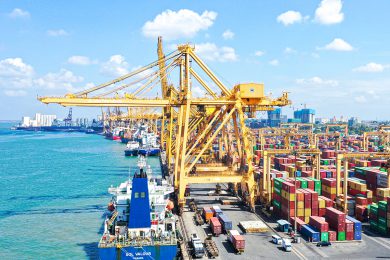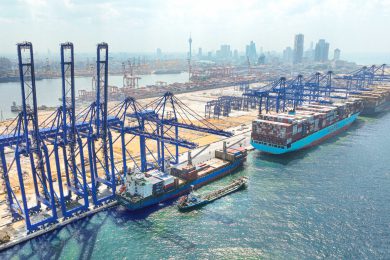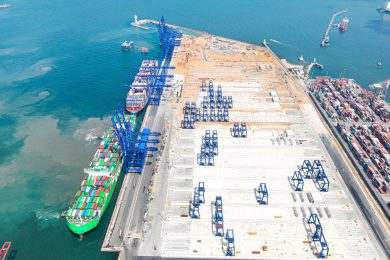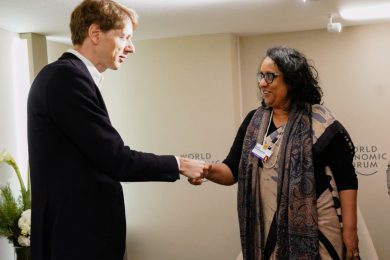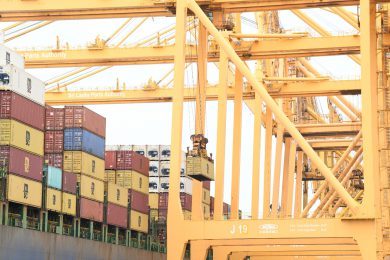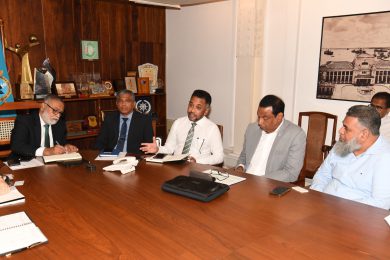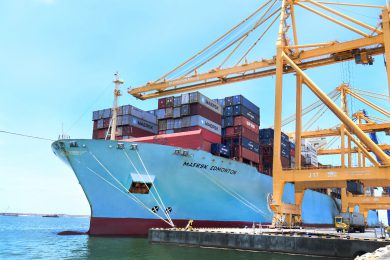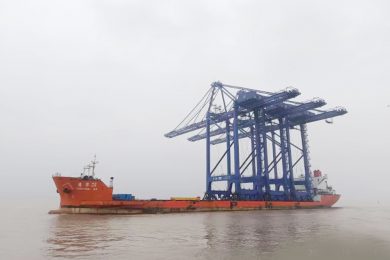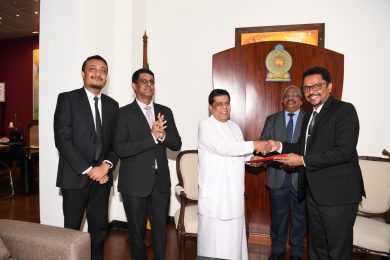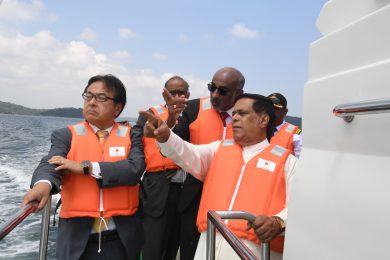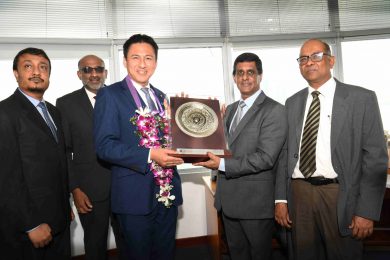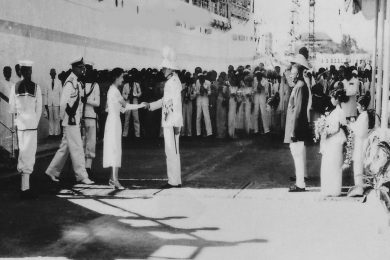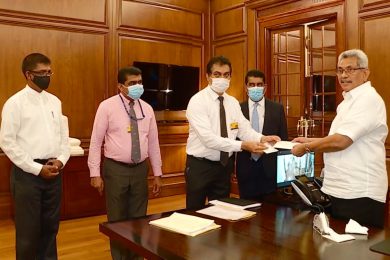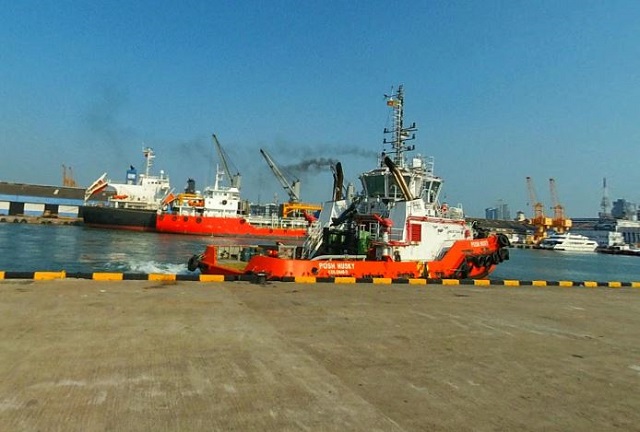The main business at Colombo port is transshipment serving mainly India as well as other South Asian nations.
Sri Lanka’s Colombo port has to diversify beyond being a transshipment port to be a true maritime hub, offering bunkering at market prices, ship chandling, a better legal system, marine finance and insurance a veteran shipping official said.
“I feel that we have to redefine from Sri Lankan point of view of calling Sri Lanka a hub when it is only a transshipment hub,” Ruanthi De Silva, a maritime consultant said at an online forum organized by National Chamber of Commerce.
“In order to make this a real hub there are a few things we have to do”.
De Silva has over 40 years’ experience in firms like Hapag Lloyd Asia, Bernhard Schulte Ship Management, after starting at Ceylon Shipping Corporation.
The main business at Colombo port is transshipment serving mainly India as well as other South Asian nations.
Maritime Hub
De Silva, who had controlled a 500 million dollar budget for several hundred vessels that were plying global trade routes, said ships had many needs that Sri Lanka could provide as a maritime hub.
Most of the budget was spent at hub ports in the world which offered multiple services.
She said Sri Lanka was a good cargo hub with high service levels. Sri Lanka had a ‘brilliant’ dry dock which her company had also used, she said. But much more use could be made of the location.
“What we call a hub port, is not where ships went for just cargo or transshipment,” she said. “In order to make this (Sri Lanka) a real hub there are a few things we have to do. I am sure we can do it.”
“What is the shipping hub? Are we taking advantage of our position for cargo.”
“What we don’t have to call it a maritime hub is we don’t have a very good voyage repair and maintenance facility, we do not have ease of bunkering; we only have a few players and our pricing is not right,” De Silva said.
“We also have the ability for 85,000 ships (that pass by Sri Lanka) to do chandling, deliveries, and underwater inspections. All this is happening to some extent but out of 85,000 ships for how many are we providing this service? We are not selling ourselves right.
Sri Lanka could do more to be a flag state and also be a ship classifying authority, De Silva said.
“We do not have a maritime legal system to be proud of. We also do not have ship financing,”
“It does not mean we have to give our local finance. That we know is not an option at the moment because we ourselves are in difficulty.
“But maritime financing does not mean you have to bring the country’s finance and give the shipowners; no, but you have to create the consortium to organize these.”
Soft Infrastructure
Economic analysts, however, have pointed out that Sri Lanka cannot provide international finance without central bank reforms to stop it from printing money and de-stabilizing the currency.
The Monetary Authority of Singapore, for example, had provided a strong foundation of stability, while money printed by Sri Lanka’s central bank makes it difficult for the island to even import basic items.
The money printed to create the run on the rupee in March and April 2021 had halted import instead of stopping the central bank from printing money to keep rates down at every spike in domestic credit.
Sri Lanka also has restrictions on foreign investment into warehousing and ship agency business, other analysts have said.
Other facilities Sri Lanka lacks include ship brokering and a standard tax regime.
“We do not have maritime insurance,” De Silva said.” We do not have a reputed ship brokering arm here. We do have very educated ship brokers, but we aren’t out there in the market selling ourselves as brokers.
“Sadly, we do not have an internationally recognizable tax regime for ship owners to consider Sri Lanka”.
“So, we are called a maritime hub, but I feel we have to have to be on the path to those facets and not just be an excellent cargo hub in which we have done really well.”
Daya Ratnayake, Chairman of Sri Lanka Ports Authority a retired army general said he welcomed new ideas to take Colombo to a new level. He also felt that Sri Lanka had strong locational advantage but it had not been made full use of.
“We have a very good location but has not transformed it to be an absolute advantage,” he said.
“We being soldiers we are good at strategizing. We look for new ideas. I would definitely call Dr. De Silva tomorrow. I have started a think tank for research. So I need her input coming in.”
Covid Hub
During the Coronavirus crisis, the port has been running around the clock and had gained a brand name for operating without delays.
“We have not delayed any ships that have called on to our ports, as a result, there is an increase of 2.4 percent in ships coming into our ports during this period,” he said.
The port was now hiring out space for containers and also getting involved in crew changes. More is planned in warehousing.
“Logistic business has a huge opportunity, immediately we are planning a huge logistic center within the port…within three to five years we will build two more terminals.
“In the last four months we have taken the opportunity to finalize the plans to develop the East Terminal and the new West Terminal and the passenger terminal in Colombo port’
Sri Lanka’s President has asked for new terminals to be driven by equity.
Source: Economy Next



